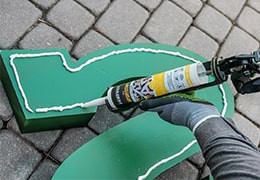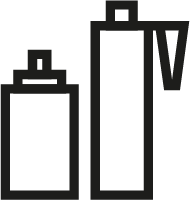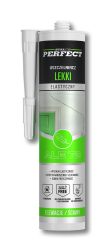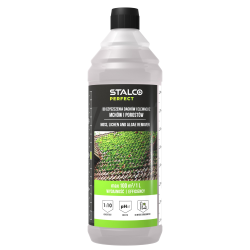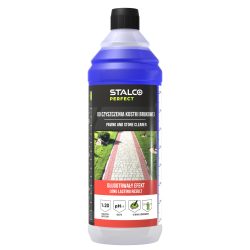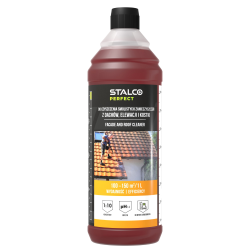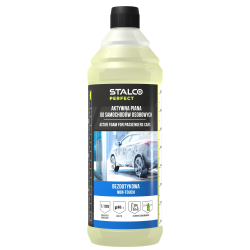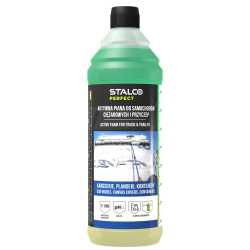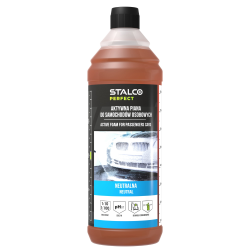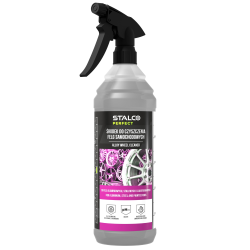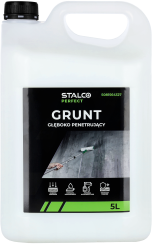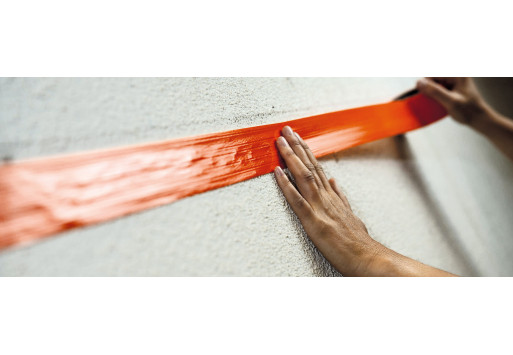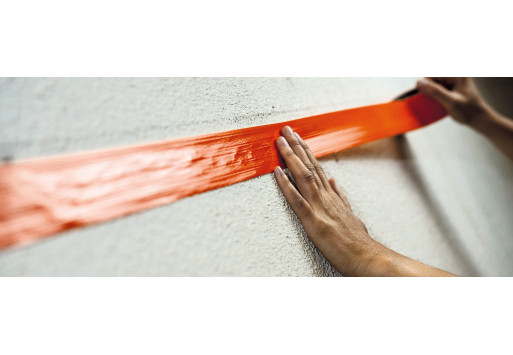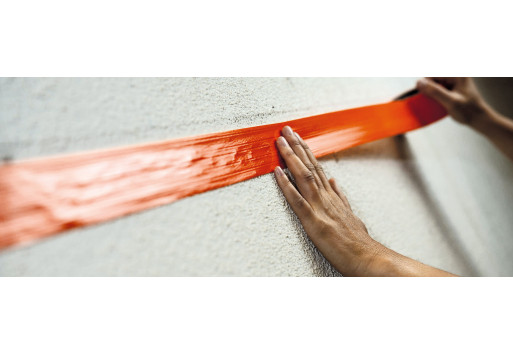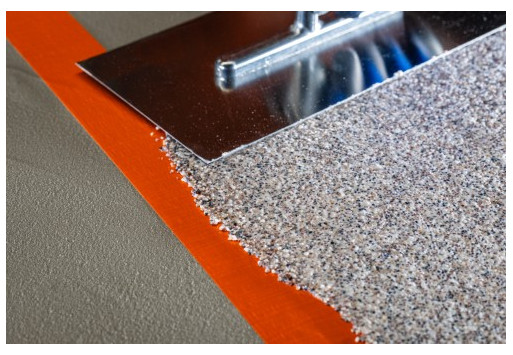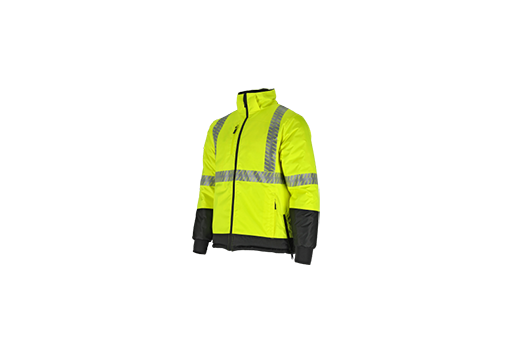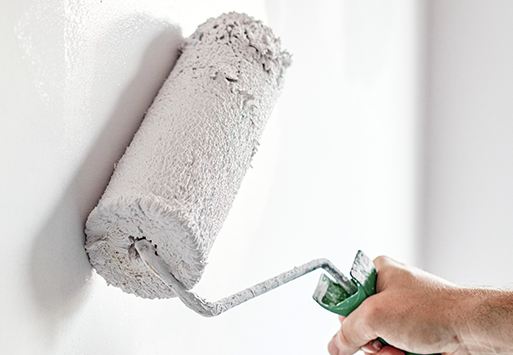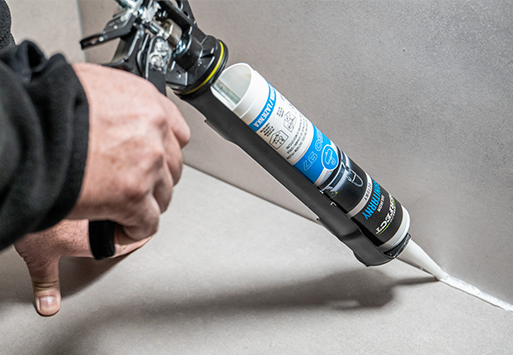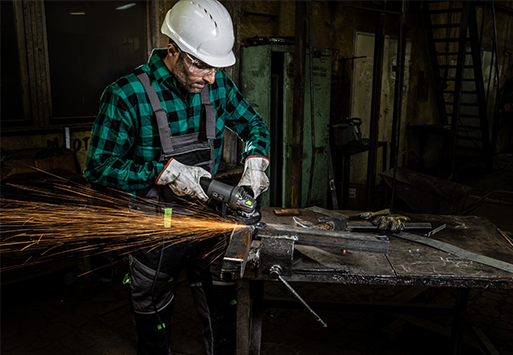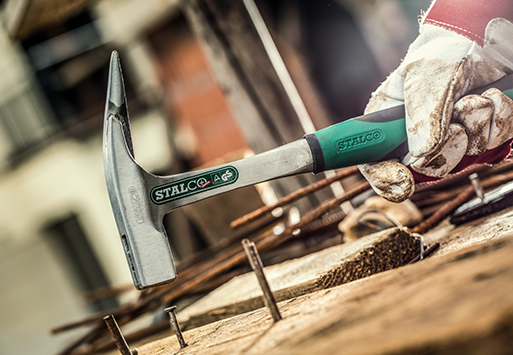Which Silicone and Sealant to Choose?
Most of you have probably encountered a long plastic container with a characteristic conical nozzle at its end. These are various types of sealants containing medium-density compounds, which make it easy to fill gaps or cracks.
Unfortunately, the packaging can be misleading, as elongated cartridges can also contain acrylics, putties, adhesives, and other substances. There are many silicone products, most of which are intended for use in construction.
Everything About Silicones and Sealants in a Nutshell
Silicone is indispensable for jointing, grouting, and sealing. It comes in many types, differing in properties and applications. What do all silicones have in common? Durability, elasticity, waterproofness, and ease of use.
Sealants are used to fill all kinds of gaps, expansions, cracks, and joints between window frames and walls, sanitary devices and ceramic tiles, or baseboards mounted to uneven plasters.
They are simple to operate as they are squeezed out of a plastic container called a cartridge, ending with a conical nozzle, using a manual gun. They are easy to keep clean and in good technical condition.
SILICONE FOR SEALING BUILDING MATERIALS
Universal clear acetoxy silicone is designed for sealing building materials and less stressed joints, for mounting glass in wooden, PVC frames, and glazing. It does not settle in vertical joints and has good mechanical properties, accommodating 20% movement. It is weather-resistant, UV resistant, and aging-resistant. It also withstands a wide range of chemicals and has excellent adhesion to most construction materials without primer. It is not recommended for sealing galvanized, aluminum, copper, brass, natural stone, or alkaline substrates (e.g., lime).
Example: SUO88 PERFECT.
UNIVERSAL NEUTRAL CLEAR SILICONE
A flexible neutral sealant with excellent adhesion to all building materials (concrete, brick, wood, steel, aluminum, various plastics, aerated concrete, ceramics, glass, clinker, iron, porcelain, styrofoam, enamel, etc.). It is intended for mounting glass in wooden, aluminum, and PVC frames, sealing expansion joints on facades, between window frames and doors, between shelves and walls, connecting sills and trims, and sealing cracks in silos and tanks. It has very good adhesion for various applications such as balconies, terraces, garages, boats, and campers. With good mechanical properties, it accommodates 20% movement and is resistant to weather conditions, including rain, snow, extreme temperatures, UV radiation, and various chemicals. It does not cause corrosion and is intended for alkaline substrates (cement and lime plaster, natural stone, noble metals).
Example: SUN24 PERFECT.
ACETIC SANITARY SILICONE CLEAR
A permanently flexible acetoxy-based sealant with excellent adhesion to most building materials, including smooth surfaces (ceramics, glass, glazed surfaces, profiled glass, clinker, porcelain, etc.). It is designed for sealing less stressed joints in sanitary installations (bathtubs, shower cabins, sinks) and other damp areas prone to mold (bathrooms, toilets, kitchens, basements). It has good mechanical properties, accommodating 20% movement, and is resistant to weather conditions, UV radiation, and aging. It also withstands a wide range of chemicals. It is not recommended for sealing galvanized sheets as acetic acid is released during curing.
MULTI-PRO SILICONE
A professional, permanently flexible, neutral sealant with extended resistance to mold. It has excellent adhesion to all building materials (ceramics, glass, various plastics, aluminum, concrete, brick, wood, steel, aerated concrete, gypsum boards, clinker, noble metals, porcelain, styrofoam, enamel). It is ideal for sealing joints in bathrooms, kitchens, showers, tiles, countertops, sinks, and basins, as well as for jointing and sealing connections between sanitary devices and ceramics or furniture. It is used for glazing and bonding in shower cabin production. It is also designed for sealing connections between window and door frames made of various building materials and for mounting roof windows.
Features:
- Does not yellow
- Does not sag in vertical gaps
- Primer required for better adhesion to porous materials
- Does not adhere to some plastics, polyethylene, Teflon, and bituminous compounds
- Excellent mechanical properties
- Accommodates 25% movement
- Resistant to weather conditions, UV light, and aging
- Resistant to soaps and detergents
- Does not cause corrosion
- Cannot be painted
- Wide color palette: clear, white, jasmine, bahama beige, caramel, brown, light gray (Manhattan), gray, anthracite, black
Example: SILIKON MULTI PRO clear SILIKON MULTI PRO (available in various colors).
INDOOR SEALANT
An acrylic-based sealant for indoor use. It is dedicated to sealing porous materials such as concrete, aerated concrete, wood, ceramic tiles, and gypsum boards in interiors exposed to less stress. It is intended for filling gaps around ceilings made of gypsum boards and sealing joints during window and door installation and connections between gypsum boards and concrete elements. It accommodates up to 15% movement. It is easy to apply and has good adhesion to porous materials. The mass can be applied to moist surfaces, and once fully cured, it is insensitive to water. It is resistant to various weather conditions, sunlight, and aging. It does not contain solvents (VOC-free). The fresh mass can be easily cleaned with water.
Example: AU 70 PERFECT.
There are many types and kinds of silicones and sealants. Before starting renovation or finishing work, do thorough research and choose a product that truly meets your expectations. The above contains several inspirations and ready-made solutions to help you seal almost anything. So... get to work!
Related posts
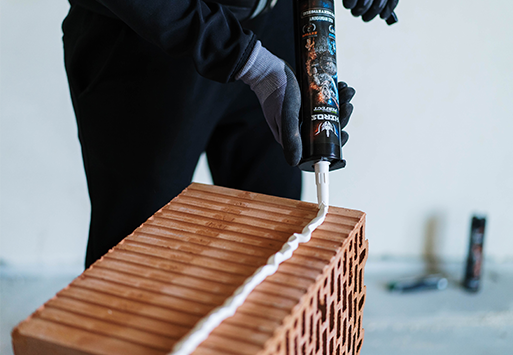
HEROS Universal Adhesive – Discover the Ultimate All-Purpose Glue
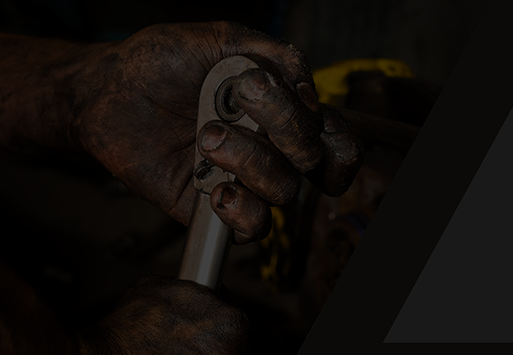
How to Properly Clean and Care for Your Hands
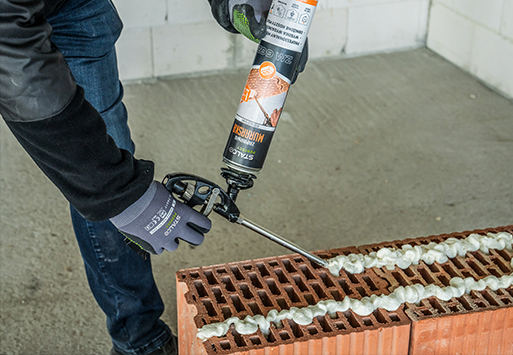
CONSTRUCTION CHEMISTRY: APPLICATIONS AND USES
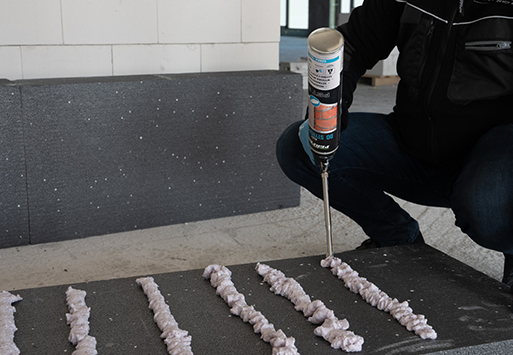
Types of Assembly Foams
